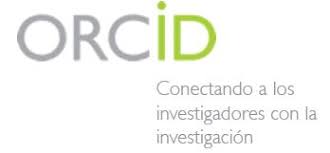Una mirada al desperdicio de alimentos en Hoteles, Restaurantes y Cafeterías HORECA/A look at food waste in Hotels, Restaurants and Cafeterias HORECA
Abstract
Los crecientes volúmenes de alimentos que, a nivel mundial, se pierden o desperdician a lo largo de la cadena alimentaria, conspiran contra el logro de los Objetivos de Desarrollo Sostenible. Por lo tanto, este artículo tiene como objetivo evaluar el estado actual de la problemática del desperdicio de alimentos, con énfasis en el sector de Hoteles, Restaurantes y Cafeterías. Para ello se revisaron artículos de los últimos cinco años, disponibles en bases de datos en línea, donde se hizo una búsqueda por palabras clave relacionadas con el tema. Los resultados muestran que los Hoteles, Restaurantes y Cafeterías se sienten culpables por desperdiciar alimentos, pero no ponderan los aspectos de sostenibilidad ambiental y social; además de que el personal de implicación directa con el servicio afronta, entre otros retos, la carencia de sistemas de gestión y capacitación, así como los patrones de consumo de alimentos no sostenibles de los clientes. Se concluye que, a pesar de que la reducción del desperdicio de alimentos en los Hoteles, Restaurantes y Cafeterías es una estrategia creciente que se enfoca en minimizar o eliminar el impacto ambiental que este provoca a nivel mundial, es evidente la necesidad de continuar investigando en este campo, sobre todo en el ámbito nacional.
Palabras clave: desperdicio; economía verde; ecoturismo; efectos de las actividades humanas; industria del ocio
ABSTRACT
The increasing volumes of food lost or wasted throughout the global food chain conspire against the achievement of the sustainable development goals. Therefore, this paper aims to evaluate the current state of the problem of food waste with emphasis on the Hotel, Restaurant and Catering sector. For this purpose, articles from the last five years, available in online databases, were reviewed and searched by keywords related to the topic. The results show that Hotel, Restaurant and Catering feel guilty for wasting food, but do not consider environmental and social sustainability aspects. In addition, the staff directly involved in the service faces the lack of management and training systems, as well as the unsustainable food consumption patterns of customers, among other challenges. It is concluded that, although the reduction of food waste in Hotel, Restaurant and Catering is a growing strategy that focuses on minimizing or eliminating the environmental impact it causes worldwide, there is a clear need for further research in this field, especially at the national level.
Keywords: ecotourism; effects of human activities; green economy; leisure industry; wastes
Downloads
References
Aditya, A. & Kurniawati, K. (2023). Food Waste Management Challenges and Strategies in The Hotel Industry in Jakarta. Journal of Social Research, 2(9), 2983-2989. https://ijsr.internationaljournallabs.com/index.php/ijsr/article/view/1295
Asamblea Nacional del Poder Popular (ANPP). (2022). Ley 148/2022. Ley de Soberanía Alimentaria y Seguridad Alimentaria y Nutricional. Gaceta Oficial de la República de Cuba del 28 de julio de 2022-754-O77. https://www.gacetaoficial.gob.cu/sites/default/files/goc-2022-o77_.pdf
Baig, M. B., Al-Zahrani, K. H., Schneider, F., Straquadine, G. S. & Mourad, M. (2019). Food waste posing a serious threat to sustainability in the Kingdom of Saudi Arabia–A systematic review. Saudi journal of biological sciences, 26(7), 1743-1752. https://www.sciencedirect.com/science/article/pii/S1319562X18301451
Binz, P. y Conto, S. M. de (2019). Gestión de la gastronomía sustentable: prácticas del sector de alimentos y bebidas en hospedajes. Estudios y perspectivas en turismo, 28(2), 507-525. https://www.scielo.org.ar/scielo.php?pid=S1851-17322019000200014&script=sci_arttext
Caravedo Martinez, I. y Bueno Obando, J. L. F. (2021). Gestión del desperdicio de alimentos en el sector de Hoteles, Restaurantes y Cafeterías (HORECA) [Tesis de Grado, Universidad Peruana de Ciencias Aplicadas]. https://repositorioacademico.upc.edu.pe/bitstream/handle/10757/658612/Caravedo_MI.pdf?sequence=3&isAllowed=y
Carino, S., Porter, J., Malekpour, Sh. & Collins, J. (2020). Environmental sustainability of hospital foodservices across the food supply chain: a systematic review. Journal of the Academy of Nutrition and Dietetics, 120(5), 825-873. https://www.sciencedirect.com/science/article/abs/pii/S2212267220300010
Consejo de Estado. (2020). Decreto Ley 9/2020. Inocuidad Alimentaria. Gaceta Oficial de la República de Cuba del 30 de octubre de 2020-675-O76. https://www.mined.gob.cu/wp-content/uploads/2020/10/goc-2020-o76.pdf
Corrado, S. & Sala, S. (2018). Food waste accounting along global and European food supply chains: State of the art and outlook. Waste management, 79, 120-131. https://www.sciencedirect.com/science/article/pii/S0956053X18304550
Delgado, A., Rodriguez, R. & Staszewska, A. (2023). Tackling food waste in the tourism sector: towards a responsible consumption trend. Sustainability, 15(17), 1-9. https://www.mdpi.com/2071-1050/15/17/13226
Dhir, A., Talwar, Sh., Kaur, P. & Malibari, A. (2020). Food waste in hospitality and food services: A systematic literature review and framework development approach. Journal of Cleaner Production, 270, 122861. https://www.sciencedirect.com/science/article/pii/S0959652620329061
FAO (2018). El estado de la seguridad alimentaria y la nutrición en el mundo: Fomentando la resiliencia climática en aras de la seguridad alimentaria y la nutrición. FAO. https://openknowledge.fao.org/server/api/core/bitstreams/6e25cc6e-d527-4651-b781-11a6349ee80f/content
FAO. (2019). El estado mundial de la agricultura y la alimentación: progresos en la lucha contra la pérdida y el desperdicio de alimentos. FAO. https://openknowledge.fao.org/server/api/core/bitstreams/2120f787-5a49-41f5-a9fb-f4ceaac98b2c/content
FAO & UNESCO (2019). Chefs as agents of change. FAO. https://openknowledge.fao.org/server/api/core/bitstreams/89b706d4-9bfb-47b3-9c57-f4832bf048a2/content
Filimonau, V. & Coteau, D. A. de (2019). Food waste management in hospitality operations: A critical review. Tourism management, 71, 234-245 https://www.sciencedirect.com/science/article/abs/pii/S0261517718302449
Filimonau, V., Fidan, H., Alexieva, I., Dragoev, S. & Marinova, D. D. (2019). Restaurant food waste and the determinants of its effective management in Bulgaria: An exploratory case study of restaurants in Plovdiv. Tourism Management Perspectives, 32, 100577. https://www.sciencedirect.com/science/article/abs/pii/S2211973619301096
Filimonau, V., Zhang, H. & Wang, L.-en. (2020). Food waste management in Shanghai full-service restaurants: A senior managers’ perspective. Journal of Cleaner Production, 258, 120975. https://www.sciencedirect.com/science/article/abs/pii/S0959652620310222
Franchini, C., Biasini, B., Rosi, A. & Scazzina, F. (2023). Best practices for making the university campus a supportive environment for healthy and sustainable diets. Current Opinion in Environmental Science & Health, 32, 100436. https://www.sciencedirect.com/science/article/abs/pii/S2468584422001118
Hoehn, D., Vázquez-Rowe, I., Kahhat, R., Margallo, M., Laso, J., Fernández-Ríos, A., Ruiz-Salmón, I. & Aldaco, R. (2023). A critical review on food loss and waste quantification approaches: Is there a need to develop alternatives beyond the currently widespread pathways? Resources, Conservation and Recycling, 188, 106671. https://www.sciencedirect.com/science/article/pii/S0921344922005043
Kirchherr, J., Yang, N.-H. N., Schulze-Spüntrup, F., Heerink, M. J. & Hartley, K. (2023). Conceptualizing the circular economy (revisited): an analysis of 221 definitions. Resources, Conservation and Recycling, 194, 107001 https://www.sciencedirect.com/science/article/pii/S0921344923001374
Laurentiis, V. de, Caldeira, C. & Sala, S. (2020). No time to waste: assessing the performance of food waste prevention actions. Resources, Conservation and Recycling, 161, 104946. https://doi.org/10.1016/j.resconrec.2020.104946
Lemaire, A. & Limbourg, S. (2019). How can food loss and waste management achieve sustainable development goals? Journal of Cleaner Production, 234, 1221-1234. https://www.sciencedirect.com/science/article/abs/pii/S0959652619321912
Ministerio de Economía y Planificación. (2019). Plan Nacional de Desarrollo Económico y Social hasta el 2030. https://www.mep.gob.cu/sites/default/files/Documentos/Archivos/FOLLETO%20PNDES%20%20FINAL%20est%C3%A1%20en%20planificaci%C3%B3n.pdf
Montoya Morales, A. J., García Londoño, M. L. y Vélez Ramírez, R. A. (2022). La sostenibilidad empresarial desde las prácticas sostenibles, los grupos de interés y la responsabilidad social corporativa: una revisión de la literatura. Revista CIFE, 24(41), 132-155. https://revistas.usantotomas.edu.co/index.php/cife/article/view/7731/7370
Naciones Unidas. (2018). La Agenda 2030 y los Objetivos de Desarrollo Sostenible: una oportunidad para América Latina y el Caribe. CEPAL. https://repositorio.cepal.org/server/api/core/bitstreams/cb30a4de-7d87-4e79-8e7a-ad5279038718/content
Naciones Unidas. (28 de septiembre de 2021). El mundo desperdicia el 17% de los alimentos mientras 811 millones de personas sufren hambre. https://news.un.org/es/story/2021/09/1497582
Ng, P. Y. & Sia, J. K.-M. (2023). Managers´ perspectives on restaurant food waste separation intention: The roles of institutional pressures and internal forces. International Journal of Hospitality Management, 108, 103362. https://www.sciencedirect.com/science/article/pii/S0278431922002286
Nguyen, T. T. T., Malek, L., Umberger, W. J. & O'Connor, P. J. (2023). Food waste ‘Warriors’,‘Strugglers’ and ‘Slackers’: Segmenting households based on food waste generation and sorting behaviours. Food Quality and Preference, 112, 105000. https://doi.org/10.1016/j.foodqual.2023.105000
Nuez, L. de la (2022). Cocina de aprovechamiento, un aporte para la sostenibilidad. Unapec Verde, 3(3), 21-26. https://repositorio.unapec.edu.do/handle/123456789/898
Özbük, R. M. Y. & Coşkun, A. (2020). Factors affecting food waste at the downstream entities of the supply chain: A critical review. Journal of Cleaner Production, 244, 118628. https://www.sciencedirect.com/science/article/abs/pii/S0959652619334985
Papargyropoulou, E., Steinberger, J. K., Wright, N., Lozano, R., Padfield, R. & Ujang, Z. (2019). Patterns and causes of food waste in the hospitality and food service sector: Food waste prevention insights from Malaysia. Sustainability, 11(21), 6016. https://www.mdpi.com/2071-1050/11/21/6016
Pasqualotto, C., Callegaro-De-Menezes, D. & Schutte, C. S. L. (2023). An Overview and Categorization of the Drivers and Barriers to the Adoption of the Circular Economy: A Systematic Literature Review. Sustainability, 15(13), 10532. https://www.mdpi.com/2071-1050/15/13/10532
Principato L., Di Leo, A., Mattia, G. & Pratesi, C. A. (2021). The next step in sustainable dining: the restaurant food waste map for the management of food waste. Italian Journal of Marketing, 2021, 189-207. https://link.springer.com/article/10.1007/s43039-021-00032-x
Principato, L., Pratesi, C. A. & Secondi, L. (2018). Towards zero waste: An exploratory study on restaurant managers. International Journal of Hospitality Management, 74, 130-137. https://www.sciencedirect.com/science/article/abs/pii/S0278431917306138
Programa de las Naciones Unidas para el Medio Ambiente (PNUMA). (2021). Informe sobre el índice de desperdicio de alimentos 2021. ONU. https://alimentosargentinos.magyp.gob.ar/HomeAlimentos/PDA/pdf/IDA_FoodWaste.pdf
Río Anguita J. L. del, Ortiz Gutiérrez, E., Domínguez-Pérez, I., Ortiz-Somovilla, V. y Cantos-Villar, E. (2023). Pérdida y desperdicio de alimentos: Uno de los grandes retos de la economía circular. C3-BIOECONOMY: Circular and Sustainable Bioeconomy, (4):55-73. https://journals.uco.es/bioeconomy/article/view/16279
Shanks, C. B., Banna, J. & Serrano, E. L. (2017). Food waste in the National School Lunch Program 1978-2015: A systematic review. Journal of the Academy of Nutrition and Dietetics, 117(11), 1792-1807. https://www.sciencedirect.com/science/article/pii/S2212267217305981
Thamagasorn, M. & Pharino, Ch. (2019). An analysis of food waste from a flight catering business for sustainable food waste management: A case study of halal food production process. Journal of Cleaner Production, 228, 845-855. https://www.sciencedirect.com/science/article/abs/pii/S095965261931409X
Wang, Ch., Ghadimi, P., Lim, M. K. & Tseng, M.-L. (2019). A literature review of sustainable consumption and production: A comparative analysis in developed and developing economies. Journal of Cleaner Production, 206, 741-754. https://www.sciencedirect.com/science/article/abs/pii/S0959652618329019
Wang, L.-en, Liu, G., Liu, X., Liu, Y., Gao, J., Zhou, B., Gao S. & Cheng, Sh. (2017). The weight of unfinished plate: A survey based characterization of restaurant food waste in Chinese cities. Waste management, 66, 3-12. https://www.sciencedirect.com/science/article/abs/pii/S0956053X17302416
Downloads
Published
Versions
- 2025-07-10 (3)
- 2025-06-25 (2)
- 2025-05-24 (1)
How to Cite
Issue
Section
License
Copyright (c) 2025 Jorge Luis Benítez Rodríguez, Juan Emilio Hernández García, Yaima Hernández-Beltrán, Aristides Torres Laboris

This work is licensed under a Creative Commons Attribution-NonCommercial-NoDerivatives 4.0 International License.


_(Custom).jpg)



















